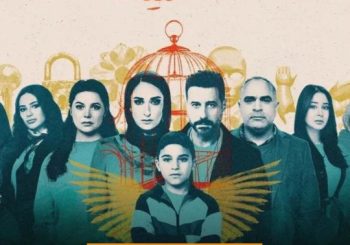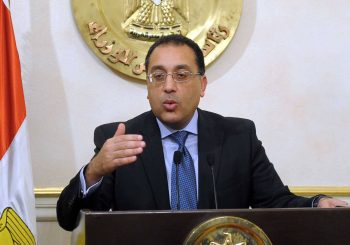Wandering through the Siwan marketplace, passing cartons filled with dates freshly picked from the towering palm trees, olives well-preserved for months, and handmade scarves full of colorful embroidered symbols made by the Siwan women within their homes, makes the curious traveler stop to find out more.
Mesmerized by the seemingly elusive symbols, the traveler inquires about the symbols’ meanings, yet only a few shopkeepers are able to decipher its context. In fact, the colors and symbols, unquestionably unique and striking to the eye, each represents a specific sound within the spoken language, commonly referred to in Siwan as Ejlan ni Siwan. Tifinagh or the traditional alphabet – which is used by the Amazigh in North Africa – is not well understood within the Siwan community.
The Amazigh, a distinct ethnic group whose communities can be found with a larger population in Morocco and Algeria, are also represented in Tunisia, Libya, Niger and Egypt. The latter community, residing in Egypt’s Siwa Oasis, is experiencing a transition in their cultural identity because although everyone speaks the language represented by the ancient script, they are unable to read the symbols.
The idea of a modern Siwan man or woman who can read and understand their native language script is rare. Ironically, sources like Wikipedia tend to be just as educational to the Siwans as they are to the foreigner who looks into this community from the outside with curiosity.
For the women who embroider these symbols into scarves and traditional wedding attire, the tradition has remained as a social endeavor, as opposed to a language learning opportunity. Siwan women continue to make these garments as a means for profit, with the main aim of supporting their local economy; meanwhile, the knowledge of their own language continues to plummet.
Ismail Snosy Gagy, a young Siwan currently witnessing the loss of his language, sat down for an interview with AUC Times to describe the current state of the language and the Siwan identity. He explains that “the language is dying” and nowadays Siwans communicate by “mixing words,” using both Arabic and Ejlan ni Siwan (Siwan language) interchangeably. Within the community, there is a tendency to mix Egyptian Arabic with the now only-spoken dialect, and this process has been taking place within a 200-year time span.
Part of this linguistic transition is due to the religious traditions and terminologies from the Quran that have infiltrated the way Siwans speak. And to add to this idiomatic dilemma, Siwans are also experiencing an ideological dilemma that comes from the fact that the Siwa Oasis is officially located within the territorial boundaries of Egypt.
What Ismail sees for the future of the Siwan identity is a crisis, a loss of the true Siwan identity. “I wish I can stop it,” he admits, with respect to its changing nature, due to the Egyptian government’s restraints on speaking Ejlan ni Siwan. Admittedly, Siwans refrain from speaking their native tongue in schools because many Egyptians do not understand them when they are speaking.
Though part of the problem, the Egyptian government is not fully at fault. Without the Tifinagh literacy to read the symbols that date back as one of the oldest known Phoenician scripts to date, there is a tragic loss of the Siwan language.
Ismail claims that a way to preserve the language is to teach it. With the only known institution being the Royal Institute of the Amazigh Culture (IRCAM) located in Morocco, whose purpose is to “[safeguard and promote] the Amazigh culture and languages,” according to the institute, bringing such an academic program to Siwa Oasis appears to be nothing more than wishful thinking.
Not only would this endeavor require compliance within the community itself, but it would also require programs supported by the Egyptian government. The existence of IRCAM in Morocco shows how much the Moroccan government values the native Amazigh community that exists within the Moroccan borders – a value that has yet to be experienced by the Egyptian government for their local Amazigh community.
It might seem tragic to witness the loss of a language, but for Siwans today, they still identify with the traditions and ways of life that have been around for thousands of years. Ismail describes himself in terms of two identities: One that is Siwan and one that is Egyptian. Due to the fact that Siwa Oasis is located within Egyptian territory, Siwans’ Egyptian identity is solely based on their identification cards and their mandatory military service, as Ismail notes. On the other hand, his Siwan identity is based on his culture and how he was raised within the traditions of Siwa. When he says “I am Siwan,’’ he refers to “my land, my family” and the fact that “we can survive with other Siwans.” It is “being with the community, the culture and [understanding the best ways of] surviving in the desert.”
The fact that Siwans need each other and understand each other is what makes each one a Siwan. They survive together and understand their own land that is surrounded by the desert. This is certainly a contrast to identifying as being Egyptian because, in terms of their ways of life and survival in the desert, the Egyptian government does not support the Siwans.
As the outside world continues to interact with the Siwans’ simple lifestyle, and English becomes the language most sought after by many Siwan men dealing in tourism, Siwa is threatened by those who seek profit as opposed to cultural preservation.
Ismail, who now lives in Cairo’s Dokki district and works as an employee for the United Nations High Commissioner for Refugees (UNHCR), hopes to have a positive influence on his people. He might not be equipped to bring back the dying language, but he has the potential to show that speaking English and Arabic can go further than simply bringing in money from tourism. His ambitions reach high and he holds the Siwan identity with pride, and with these tools in hand, he is able to show that even though Tifinagh literacy is nonexistent in Siwa Oasis, the Siwan identity does not have to die with it.






Comments (0)